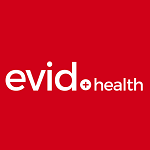The world of healthcare is undergoing a profound transformation, largely driven by the integration of digital technology into every facet of patient care. From wearable devices that monitor vital signs to telehealth platforms that connect patients with providers, digital health is revolutionising healthcare delivery. However, to fully harness the potential of these innovations, it is crucial to rely on real-world evidence (RWE) as a cornerstone for decision-making, research, and improving patient outcomes. In this article, we will explore the benefits of using RWE in the context of digital health.
What is Real-World Evidence (RWE)?
Real-world evidence refers to data and information collected outside the controlled environment of clinical trials. It is derived from a wide range of sources, including electronic health records (EHRs), claims data, patient-generated data, and wearables. RWE provides insights into how medical products, treatments, and interventions perform in real-world scenarios, reflecting the broader patient population’s diversity and complexity.
The Digital Health Revolution: A Catalyst for RWE
Digital health encompasses a broad spectrum of technologies and innovations aimed at enhancing healthcare delivery, improving patient outcomes, and reducing costs. These technologies include wearable devices, mobile apps, telehealth platforms, and remote monitoring solutions. Here’s how digital health acts as a catalyst for the generation and utilisation of RWE:
- Data Abundance: Digital health technologies generate vast amounts of patient data continuously. Wearables track activity levels, heart rate, sleep patterns, and more, while EHRs document patient encounters and treatments. This abundance of data forms a rich source for RWE.
- Continuous Monitoring: Digital health solutions allow for continuous monitoring of patients’ health conditions. For example, remote monitoring of chronic diseases like diabetes or hypertension provides a wealth of real-world data, offering insights into disease management and patient adherence.
- Patient-Generated Data: Patients are actively involved in generating data through their use of health apps and wearables. This patient-generated data is invaluable for assessing the effectiveness of interventions, patient engagement, and the impact of lifestyle changes.
Benefits of RWE for Digital Health
- Enhancing Clinical Decision-Making
RWE empowers healthcare providers with real-world insights into the effectiveness of treatments and interventions. Clinicians can use RWE to make informed decisions tailored to individual patients, resulting in more personalised care plans.
- Validating Digital Health Interventions
Digital health interventions often lack the rigorous testing associated with traditional pharmaceuticals. RWE serves as a tool to validate the effectiveness of these interventions in real-world settings. By analysing patient outcomes, adherence rates, and patient-reported outcomes, healthcare organisations can determine the true impact of digital health solutions.
- Identifying Gaps in Care
RWE can help identify gaps in care delivery and areas where digital health can make a substantial difference. For example, the analysis of EHR data may reveal disparities in chronic disease management, prompting healthcare providers to develop targeted digital health programs to address these gaps.
- Accelerating Research and Innovation
Researchers can leverage RWE to accelerate the development of new digital health technologies and refine existing ones. Large datasets derived from real-world settings enable researchers to identify trends, validate hypotheses, and design more effective interventions.
- Evaluating Long-Term Outcomes
Traditional clinical trials are often limited in their ability to assess long-term outcomes and real-world impact. RWE fills this gap by providing data over extended periods. This is particularly valuable for assessing the long-term benefits of digital health interventions on chronic disease management, medication adherence, and patient quality of life.
- Supporting Regulatory Approvals
Regulatory agencies, such as the UK’s National Institute for Health and Care Excellence and the U.S. Food and Drug Administration (FDA), increasingly recognise the value of RWE in the regulatory approval process. Robust RWE can support the clearance or approval of digital health products, potentially expediting their availability to patients.
- Improving Population Health Management
RWE plays a crucial role in population health management by identifying high-risk patient groups, predicting disease outbreaks, and assessing the impact of public health interventions. Digital health solutions, integrated with RWE, enhance population health initiatives.
Challenges and Considerations
While RWE offers substantial benefits to the digital health landscape, it is not without its challenges and considerations:
- Data Quality and Standardisation: Ensuring the quality and standardisation of real-world data from diverse sources can be challenging. Efforts are needed to establish data quality standards and interoperability to maximise the utility of RWE.
- Data Privacy and Security: Protecting patient privacy and data security is paramount. Robust safeguards and compliance with data protection regulations are essential to maintain trust in the use of RWE.
- Bias and Selection Effects: RWE may suffer from biases and selection effects, as data collection may not be random. Researchers and analysts must carefully consider these factors when interpreting RWE.
- Ethical Considerations: Ethical considerations, such as informed consent and data ownership, must be addressed when using RWE in research and healthcare decision-making.
- Data Integration: Integrating data from various sources can be complex. Effective data integration solutions and tools are necessary to leverage the full potential of RWE.
Real-world evidence is the linchpin that allows healthcare stakeholders to extract meaningful insights, improve patient outcomes, and advance the field of digital health. By harnessing the power of RWE, healthcare providers, researchers, and policymakers can make more informed decisions, develop innovative interventions, and ensure that digital health truly delivers on its promise of revolutionising healthcare delivery for the benefit of all patients.
